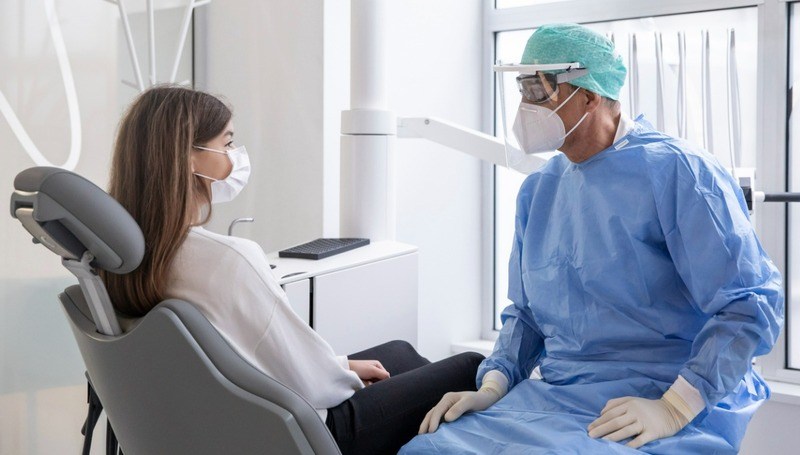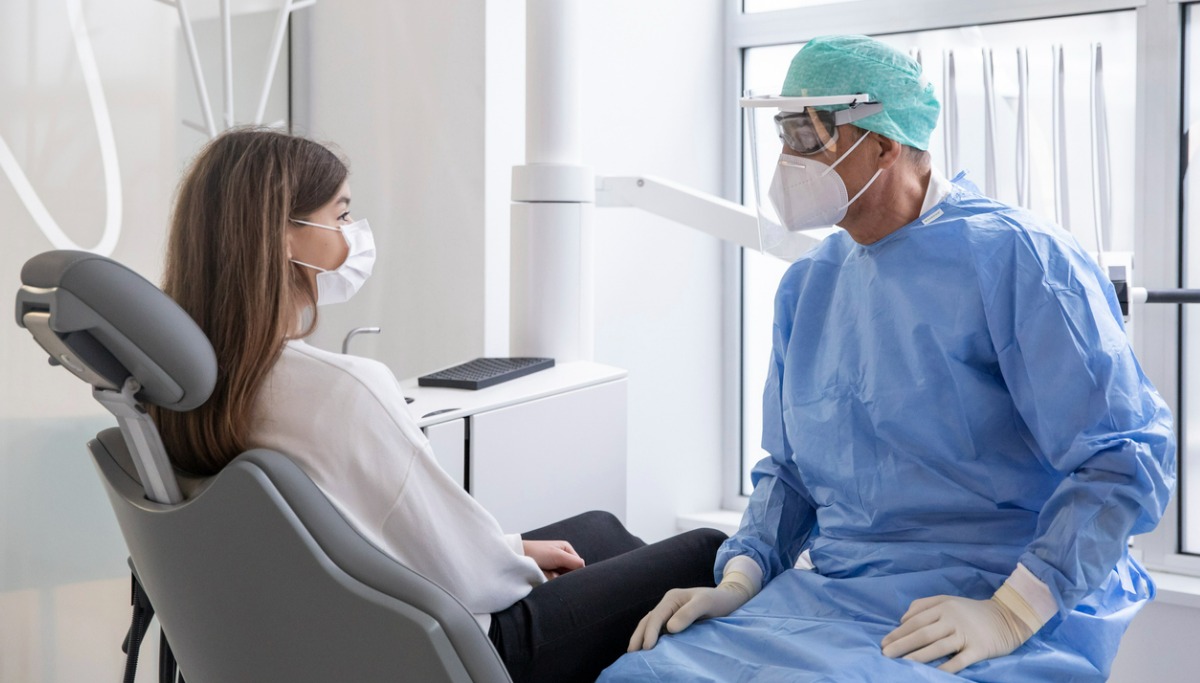
Maxillofacial surgery is a unique medical specialty that blends elements of medicine and dentistry. It encompasses procedures addressing facial, jaw, and oral conditions. Surgeons in this field receive training in both medical and dental realms, enabling them to provide comprehensive care for complex issues. Thus, maxillofacial surgery lies at the intersection of medicine and dentistry, offering a multidisciplinary approach to treatment.

Is Maxillofacial Surgery Medical or Dental?
Maxillofacial surgery is a specialized field that involves the diagnosis and treatment of conditions affecting the face, jaws, and mouth. It encompasses both medical and dental aspects, making it a unique and multidisciplinary field. Maxillofacial surgeons are trained to address a wide range of conditions, from facial trauma and congenital deformities to oral and maxillofacial pathology.
Maxillofacial surgeons undergo extensive medical training and education, including medical school and residency programs. They are licensed medical doctors who have completed additional specialized training in maxillofacial surgery.
Conditions Treated by Maxillofacial Surgeons
Maxillofacial surgeons are equipped to diagnose and treat a wide range of conditions affecting the face, jaws, and mouth. Some of the common conditions they address include:
- Facial trauma: Maxillofacial surgeons are skilled in managing facial fractures, soft tissue injuries, and other traumatic injuries to the face.
- Oral and maxillofacial pathology: They diagnose and treat conditions such as cysts, tumors, and infections in the oral and maxillofacial region.
- Orthognathic surgery: This involves correcting jaw discrepancies and improving facial balance and function.
- Cleft lip and palate: Maxillofacial surgeons work as part of a multidisciplinary team to repair these congenital deformities.
- Dental implant surgery: They perform dental implant placement to restore missing teeth and improve oral function.
- Temporomandibular joint (TMJ) disorders: Maxillofacial surgeons can diagnose and treat TMJ disorders, which can cause jaw pain and dysfunction.
Collaboration with Other Healthcare Professionals
Maxillofacial surgeons often collaborate with other healthcare professionals to provide comprehensive care to their patients. This collaboration may involve working closely with orthodontists to address dental and skeletal discrepancies, or partnering with oncologists to develop treatment plans for oral cancer patients. By leveraging their medical and dental expertise, maxillofacial surgeons can optimize treatment outcomes and improve patients’ quality of life.
In conclusion, maxillofacial surgery is a medical specialty that incorporates both medical and dental knowledge. Maxillofacial surgeons undergo extensive medical training and education to diagnose and treat conditions affecting the face, jaws, and mouth. Their multidisciplinary approach allows them to provide comprehensive care, addressing both functional and aesthetic concerns. By collaborating with other healthcare professionals, maxillofacial surgeons can achieve optimal treatment outcomes and improve patients’ overall well-being.
Key Takeaways: Is Maxillofacial Surgery Medical or Dental?
- Maxillofacial surgery is a specialized field that combines elements of both medicine and dentistry.
- It focuses on treating conditions affecting the face, jaw, and mouth.
- Maxillofacial surgeons are trained to perform complex surgeries, such as facial reconstruction and dental implant placement.
- They work closely with other medical and dental professionals to provide comprehensive care.
- Maxillofacial surgery requires extensive education and training in both medical and dental disciplines.
Frequently Asked Questions:
1. What is maxillofacial surgery?
Maxillofacial surgery, also known as oral and maxillofacial surgery, is a specialized branch of surgery that focuses on treating conditions and disorders related to the face, jaw, and mouth. It involves various surgical procedures to correct facial deformities, restore functionality, and improve overall oral health. Maxillofacial surgeons are trained in both dental and medical fields, enabling them to address complex issues involving the face and mouth.
These surgeons often work closely with other medical and dental professionals to provide comprehensive care for patients with conditions such as facial trauma, oral cancer, cleft lip and palate, temporomandibular joint disorders, and dental implant placement. Maxillofacial surgery combines expertise from both medical and dental fields to ensure optimal outcomes for patients.
2. Is maxillofacial surgery considered medical or dental?
Maxillofacial surgery is considered a unique blend of both medical and dental disciplines. While it primarily focuses on surgical interventions related to the face and mouth, it requires comprehensive knowledge and understanding of both medical and dental principles. Maxillofacial surgeons undergo extensive training that includes a dental degree followed by specialized surgical training in a hospital setting.
During their training, maxillofacial surgeons acquire skills in oral surgery, facial reconstructive surgery, anesthesia, and management of complex facial injuries. They are also trained to diagnose and treat a wide range of oral and maxillofacial conditions, making their expertise indispensable in both medical and dental settings.
3. What conditions does maxillofacial surgery treat?
Maxillofacial surgery treats a variety of conditions and disorders affecting the face, jaw, and mouth. Some common conditions that may require maxillofacial surgery include:
- Facial trauma, such as fractures and soft tissue injuries
- Oral and facial tumors, including oral cancer
- Cleft lip and palate
- Temporomandibular joint (TMJ) disorders
- Facial deformities, such as malocclusions and asymmetry
- Dental implant placement
- Obstructive sleep apnea
Maxillofacial surgeons work closely with other medical and dental specialists to provide comprehensive care for patients with these conditions, ensuring the best possible outcomes.
4. How is maxillofacial surgery different from oral surgery?
Maxillofacial surgery and oral surgery are closely related but have distinct differences. Oral surgery primarily focuses on surgical interventions related to the mouth, teeth, and gums. It involves procedures such as tooth extractions, dental implant placement, and treatment of oral infections.
On the other hand, maxillofacial surgery encompasses a broader scope, involving surgical interventions related to the face, jaw, and mouth. It addresses complex conditions such as facial trauma, jaw deformities, oral and facial tumors, and cleft lip and palate. Maxillofacial surgeons undergo additional training beyond dental school to specialize in these complex procedures, making them uniquely qualified to handle a wide range of oral and maxillofacial conditions.
5. How can I find a skilled maxillofacial surgeon?
To find a skilled maxillofacial surgeon, it is important to consider several factors:
- Ask for recommendations from your dentist, orthodontist, or primary care physician.
- Research the surgeon’s credentials, including their education, training, and certifications.
- Read reviews and testimonials from previous patients.
- Arrange a consultation to discuss your specific needs and assess the surgeon’s expertise and communication style.
- Consider the location and accessibility of the surgeon’s practice.
Choosing a skilled maxillofacial surgeon is crucial for successful treatment outcomes. Take the time to research and find a surgeon who has the necessary experience and expertise to address your specific condition or concern.
Is oral surgery WORTH IT? Income, lifestyle, AND sacrifices
Final Thoughts: Is Maxillofacial Surgery Medical or Dental?
Call or Book appointment online
:Ace Dental Care Alpharetta office: 678-562-1555 - Book Now
Ace Dental Care Norcross office: 770-806-1255 - Book Now
Disclaimer
This blog post was generated by artificial intelligence. The content of this post may not be accurate or complete, and should not be relied upon as a substitute for professional advice. If you have any questions about the content of this post, please contact us.
We are constantly working to improve the accuracy and quality of our AI-generated content. However, there may still be errors or inaccuracies. We apologize for any inconvenience this may cause.





